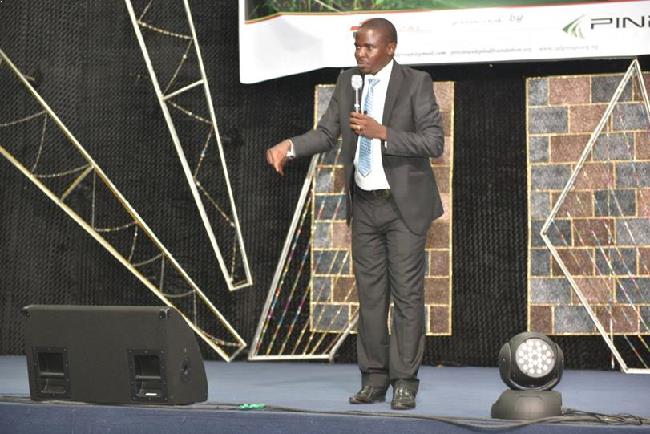
Zigha Ayibakuro has known of the challenges facing small and business owners in the Niger Delta’s challenging business environment for a long time.
“I started ZAL, my enterprise development firm, nine years ago while I was still in university. I was able to identify an opportunity in the marketplace even then while in school. I started with 25,000 naira and it finished in one week, because I used it all on print banners and flyers.”
His entrepreneurial drive and willingness to make change made him an ideal partner for PIND’s Business Linkages program. He first heard of PIND in 2013 at the Bayelsa State Investment and Economic Forum, and would eventually join PIND’s training of 19 business service providers throughout the Niger Delta in 2014. During the training, he learned to use the Picking Sound Companies (PSC) tool to analyze the strength and weaknesses of small businesses.
“For businesses to grow, technical support, market linkage and financial linkage are the most important things needed. Micro-enterprises are not micro because of their turnover or the number of employees they have, but because they are not being captured.”
The Business Linkages team set up the Technical Assistant Fund (TAF) in 2015 to improve the level of business development support for small businesses with impact on pro-poor economic development in the region. Ayibakuro’s ZAL is one of the business service providers working with TAF that helped the unit facilitate 12 linkages in its first year.
A big part of what the TAF does is to instill in small businesses the importance of technical, not only financial support. Ayibakuro’s experiences over the years have taught him the importance of guiding business owners to this realization.
“Let me tell you a story about Mr. Sylvanus, who runs a poultry business. We first met two years ago and he told us that all he needs from ZAL is money. I told him that business development is not an event, it’s a process. He paid the fee to be part of ZAL family and has been with us for 2 years. Now, he’s our greatest ambassador.
Today, he supplies a truckload of feed. He was saying at first that all he needed was a battery cage, but today he still has not bought the battery cage. He has, however, increased his capacity by over 20 percent. He had about 2000 birds before we worked together, but now he has about 4000 birds ready to be put in the poultry. He is making good progress without handouts, but by just getting his systems right.”
Ayibakuro believes the most important thing about the TAF and the work his company has done with PIND goes beyond the trainings that he has received.
“I always say that I give PIND credit for 80 percent of what we do. It was not just the diagnostic training we took part in; PIND has enabled us to create that structure that we need to grow a business and we are now doing it very well. As a result of working with PIND we have increased client base and income by 40 percent. We have also built new products and new services. We now even have accounting products and services running.”
Being the entrepreneur he is, Ayibakuro has already expanded ZAL’s business interests by investing in agriculture himself, and even started a micro-credit scheme to benefit low-income farmers. He asserts that he can do even more with PIND partnership.
“You will find PIND on our company profile, because of the value we have been receiving, not in terms of money, but in terms of knowledge and ideas. PIND is contributing to what we do, and I think the relationship is just getting started.”
Zigha Ayibakuro



